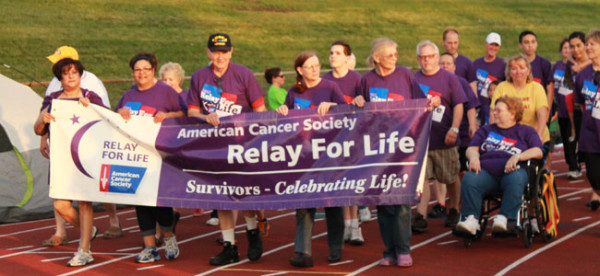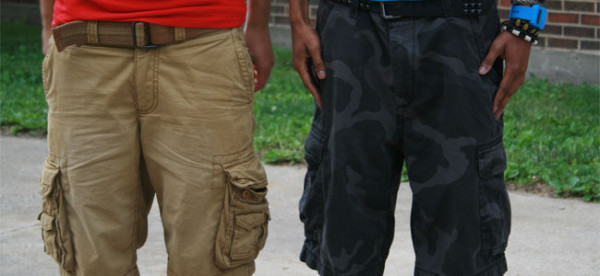The HP Mini Notebook, also known as “mini-notes”, have proven to be unreliable and a hassle for both students and teachers throughout the past three years. The constant need for re-imaging, inability to connect to the wireless network, and broken battery clips are just a few examples of the problems mini-notes have provoked.
The Tech Team at Central Office and the North Kansas City School Board of Education have recently been contemplating the idea of bringing new MacBook Airs into the district next year.
Originally, the school board planned to make a final decision on March 6. Instead, the decision was postponed until Tuesday, March 27.
By moving the decision to a later date, the district hoped to answer the big question: Will the switch to an Apple product prepare the students for real-world technology?
The district has placed their main focus on technology this year to ensure that the switch to Apple would be a positive one.
Senior, Jordan Hollis, is one of three Northtown students, that is apart of the student advisory committee for the district. Hollis explained that the MacBooks were not the district’s primary choice.
At first, the district considered switching to iPads next year. Hollis was one of the students that were given an iPad to test it out. The test was used to see how well the iPads would work within the school environment.
The test proved that the iPads were not very useful for school life. The lack of a keyboard made it harder for students to type assignments. While the absence of a USB drive made saving on a flash drive impossible.
Once the district realized that the iPads were not appropriate for school use, a second choice was needed.
“Eventually, [the student advisory committee] swayed board officials into considering MacBooks” Hollis said.
After about a year long thought process, the district made its final decision: all students and teachers will be receiving MacBook Airs next year.
When discussing the switch with NKCHS Tech Assistant Bobby Hoops, he gave his opinion in favor of the Apple company. The MacBook Airs will “start up faster, be more user friendly, and be less susceptible to viruses” Hoops said.
Not only do the MacBook Airs look sleeker, they have modern features.
Unlike the mini-notes, the MacBook Airs have an advanced lithium-polymer battery. This means up to seven hours of battery power. With a total weight of 2.38 pounds, and an ultra-thin uni-body aluminum construction, MacBook Airs already seem more sensible.
The MacBook Air’s all-flash storage is a key advantage for speed in booting up and resuming from sleep mode.
Not to mention the MacBooks most acclaimed feature, how thin it is. The MacBook Air is 0.68 inches at the thickest point and 0.11 inches at the thinnest point.
Students will be given an 11 inch MacBook Air, while the teachers and administrators will receive a 13 inch MacBook Air. The width of the screen is the only difference between the two devices.
After discussing the possible switch with several students, most had similar opinions. The main conclusions the students agreed upon were the negatives of the mini-notes. Adjectives like, “annoying” “useless” and of course “slow” were used to describe the mini-notes.
After asking an opinion about the switch to Apple, junior Sabat Ameen replied, “I think the MacBook Airs will open up scholastic opportunities. However, our school should focus on other things first, like fixing up the bathrooms.”
On the other hand, Junior Ty Williams, did not care that the district was spending money on technology. “Anything would be better than the mini-notes. I would rather use a chisel and stone than the mini-notes” Williams said.
Probably the biggest question regarding the switch is how the district is going to pay for it.
The funding plans for the student and teacher devices are completely separate.
Expenses for the teacher devices have already been anticipated because the teacher laptops were due for an upgrade. Therefore, the 13 inch MacBook Airs will be bought from Apple, with an educational pricing discount, using the “Capital Projects” fund.
Paying for the student devices is a different story.
The upgrade to the MacBook Air does include a bit of a price increase. This increase will be paid from re-purposed dollars that are within the current budget. Like the mini-notes, the student computers will still be financed through a lease program.
Although the MacBooks are a product of Apple, restrictions will still be placed on the laptops. The students will be set up as standard users, and the teachers will still be administrator users.
Ultimately, the district chooses to place restrictions on school laptops to keep the devices safe. Using MacBooks will enhance a more-user friendly experience, even with the restrictions.
School board officials, administrators, and students have all worked together this year to achieve one goal: finding a way to further promote learning.
“The district has put in a lot of time and effort to decide what piece of technology is best for learning. They leaned towards Apple because the software was compatible with learning” Assistant Principle, Bart Bates, said.
Now that the decision is final, the district is excited and hopeful about introducing the MacBooks next year.
“Students and staff will now be equipped with a tool that, when used effectively can promote deeper learning, more critical thinking, and improved work productivity” Assistant Principal, Todd Hinnenkamp, explained.
Whether the students and teachers are ready to welcome the MacBook Airs or not, they will arrive fully equipped with modern technology to bring in new advanced ways of learning.
For more information and updates, visit the district website at www.nkcschools.org.








